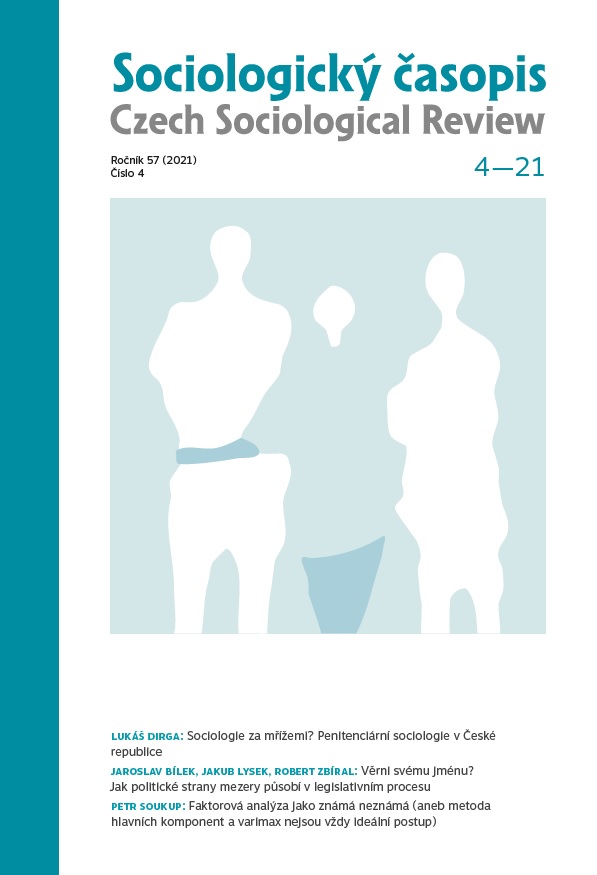Faktorová analýza jako známá neznámá (aneb metoda hlavních komponent a varimax nejsou vždy ideální postup)
Factor Analysis as a Known Unknown – Principal Component Analysis with a Varimax Rotation Is Not Always the Ideal Approach
Author(s): Petr SoukupSubject(s): Methodology and research technology
Published by: AV ČR - Akademie věd České republiky - Sociologický ústav
Keywords: factor analysis; paralell analysis; polychoric coefficient; oblique rotation
Summary/Abstract: This article seeks to show that, although factor analysis (mostly in its exploratory version) is a method frequently applied by social-science researchers (it is often also discussed in basic data analysis textbooks), only a very basic version of it is used, with settings that are far from optimal. However, what settings are used can have major implications, primarily in the form of conceptual problems, where the exploratory version is often used instead of the confirmatory version. Other settings used can also have an impact on the results. These are mainly partial options, which are used mainly in the exploratory version, in particular the choice of the correct correlation coefficients, the choice of method for the initial extraction of factors, the choice of the rotation method and the choice of the number of factors with which we want to work in the exploratory version. The text discusses the algorithms for ordinal variables, and the possibility of determining the number of factors through parallel analysis or MAP. The practical example discusses the advantages of the oblique rotation of factors. The article seeks to highlight good practices that best reflect the current state of the art of quantitative methodology and statistics. In addition to the general guidelines, the article contains practical advice about software and recommends a procedural schema for using factor analysis.
Journal: Sociologický časopis / Czech Sociological Review
- Issue Year: 57/2021
- Issue No: 4
- Page Range: 455-484
- Page Count: 30
- Language: Czech

